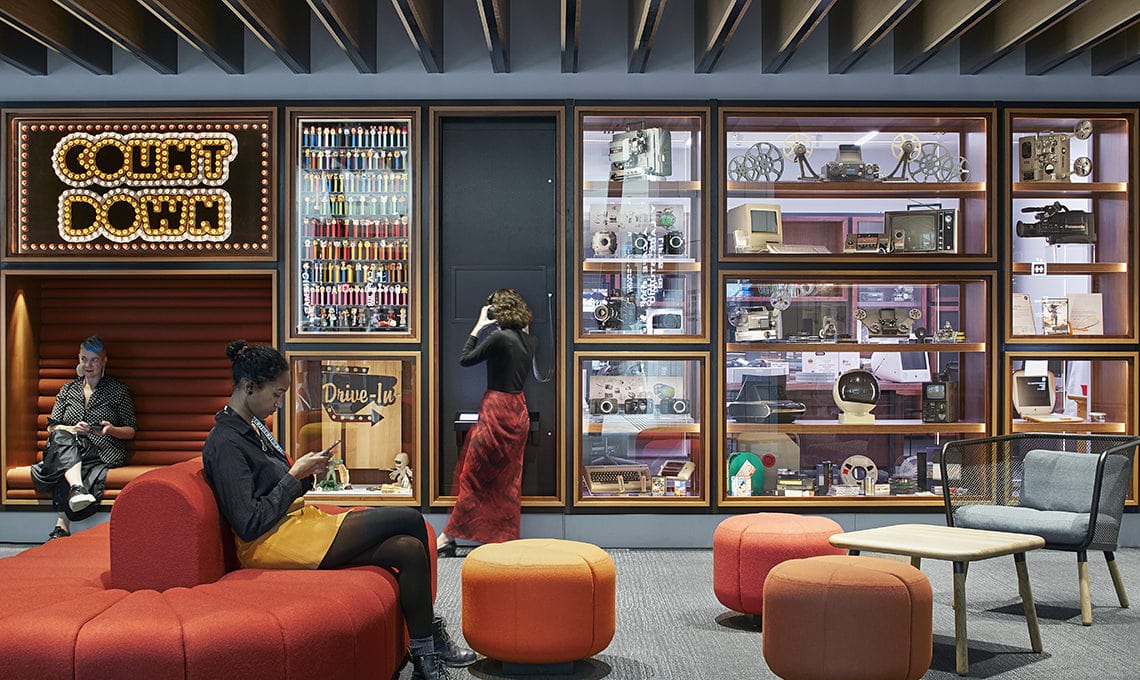
Powerful network supports new ways of exhibiting and preserving digital media
ACMI, Australia’s museum of screen culture, is one of many state and national galleries, libraries, archives and museums connected to AARNet, Australia’s national research and education network. ACMI is a world-leading museum celebrating the past, present and future of the moving image, across film, TV, video games, digital culture, and art.
AARNet’s high-performing low-latency network infrastructure underpins exhibitions and public programs, as well as collaborations with the research and academic community that are driving innovations in media, technology and user experience for museums.
Located in Melbourne’s famed Fed Square, ACMI reopened its doors to the public in 2021 following an extensive redevelopment project that has transformed the museum’s spaces, technologies, and programming.
New spaces host ground-breaking programs, such as the collaboration between ACMI and research partner RMIT University. The ACMI+RMIT Audience Labs are where game developers, filmmakers, artists, technologists and other creators can beta test their products and prototypes on ACMI audiences.
ACMI is also focused on addressing challenges around the preservation of digital artefacts in its own growing collection and for collecting institutions in general, to ensure that they are accessible to future generations.
Inside ACMI’s Blackmagic Design Media Preservation Lab, staff and collaborators are digitising ACMI’s film and time-based media collections, assessing physical artefacts from the videogame and film collections, as well as conducting hours of quality assessment work on born-digital works to make the collection accessible onsite and online. Visitors to the museum can observe the lab in action through a window that also displays collection objects. The once concealed activities of conserving and preserving media are now revealed in a central space in the museum.
ACMI’s involvement in collaborative research projects includes Play It Again II, which is exploring ways of documenting, preserving and creating an accessible and playable history of 1990’s Australasian videogames and videogame culture.
ACMI is working with AARNet, Swinburne University and RMIT University to solve the problem of obsolete hardware and bring games such as Beam Software’s Shadowrun (1993), a role-playing game set in a gritty cyberpunk future; Ratbag Games’ Powerslide (1998), a post-apocalyptic racer; and Interactive Binary Illusions’ Flight of the Amazon Queen (1995), a point-and-click adventure set in the Amazon, back to life.
The team is testing emulation as a preservation strategy using the Emulation-as-a-Service platform developed by computer scientists at Freiburg University. The platform provides access to obsolete computer environments, enabling legacy software and other digital artefacts to be emulated and accessed by users in a web browser.
Supporting ACMI in this way is a great example of how AARNet works with customers to provide the network infrastructure and solutions 21st-century GLAMs need now and into the future.
This is an edited version of a story first published on the AARNet website. Image credit: Shannon McGrath © ACMI.
For more information please contact our contributor(s):

